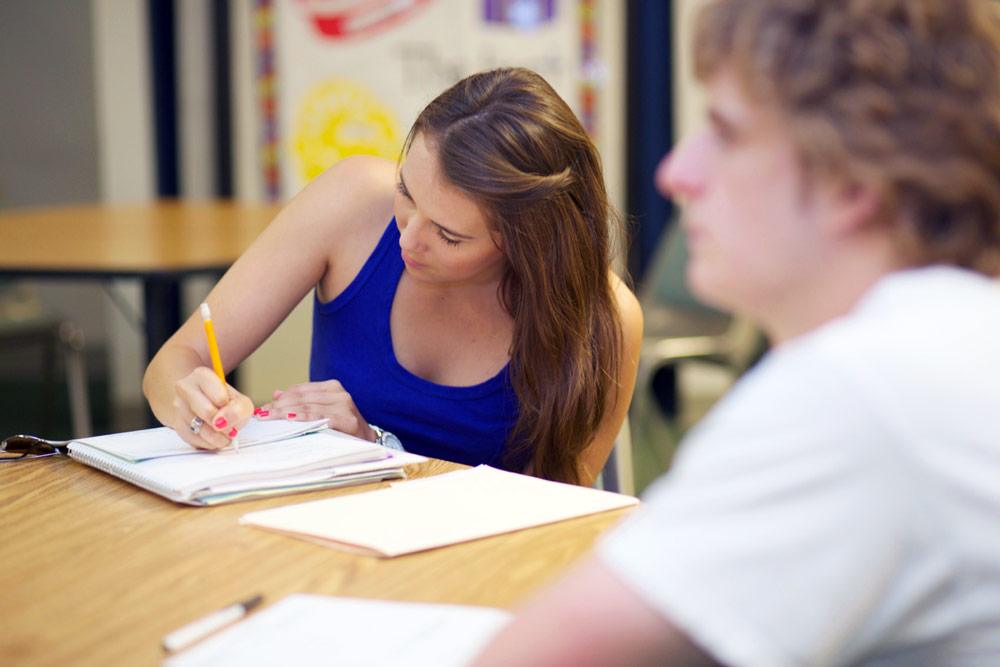 Every student from the University of La Verne will graduate with:
Every student from the University of La Verne will graduate with:
- broad knowledge and appreciation of the liberal arts integrated with a depth of knowledge in a specialized discipline;
- ability to think critically and creatively, and apply those skills toward resolution of local, national and global problems;
- excellence in written, oral, and creative expression through a variety of traditional and contemporary media;
- effective leadership and teamwork skills with cultural competence; and
- commitment to ethical, environmental, and social responsibility accompanied by civic and community engagement.
Learning Outcomes
Baccalaureate Learning Outcome 1: Integrated Learning
Students will differentiate and evaluate theories and approaches to complex, multidisciplinary problems and articulate a solution to a question or challenge using evidence from a variety of fields and co-curricular/life experiences.
Baccalaureate Learning Outcome 2: Critical Thinking
Students will be able to explain issues, select and utilize evidence, analyze assumptions, define their own position, and present the implications and consequences of their conclusions in their baccalaureate work.
Baccalaureate Learning Outcome 3: Information Literacy
Students will be able to articulate a need for information, and identify, access, evaluate, and effectively, ethically, and responsibly use that information for their academic pursuits at the bachelor’s degree level.
Baccalaureate Learning Outcome 4: Creative Thinking
Students will apply innovative thought, demonstrate an ability to synthesize divergent ideas, and use creative risk-taking as they contemplate and resolve problems.
Baccalaureate Learning Outcome 5: Oral Expression
Students will, using structured, well-supported, imaginative and appropriate oral language and effective non-verbal communication, confidently and compellingly present themselves to varied audiences.
Baccalaureate Learning Outcome 6: Written Expression
Students will communicate clearly, ethically, and purposefully to a variety of audiences in the structured written genres relevant to their academic and/or professional contexts.
Baccalaureate Learning Outcome 7: Cultural Competence
Students will demonstrate an understanding of the complexity of cultures and construction of knowledge, diversity of thought, and reflect on the process of building consensus based on shared understandings and goals.
Baccalaureate Learning Outcome 8: Teamwork and Leadership
Students will both, using effective strategies, facilitate team engagement by creating an environment conducive to team- building using effective strategies and demonstrate leadership through conflict resolution.
Baccalaureate Learning Outcome 9: Ethical Reasoning
Students will identify and articulate ethical issues, core beliefs, multiple perspectives, and multi-layer contexts when analyzing choices and making decisions.
Baccalaureate Learning Outcome 10: Civic and Community Knowledge
Students will engage in active and integrative learning based on principles of reciprocity and appreciative inquiry and analyze and critically reflect on social and environmental issues that impact communities and institutions.
Baccalaureate Learning Outcome 11: Presentation
Students will present artifacts using a variety of traditional and contemporary media to demonstrate their intellectual, professional, and personal development.
Baccalaureate Learning Outcome 12: Quantitative Reasoning
Students will develop arguments supported by quantitative reasoning and/or symbolic reasoning, and clearly communicate those arguments in a variety of formats (using words, tables, graphs, mathematical equations, symbolic notation, visual representations, etc., as appropriate).